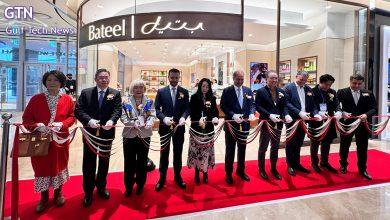Bloomberg Intelligence Survey Finds Consumers in Dubai Warm to Battery-Electric Vehicles (BEVs) With Growth Set to Overtake Europe
Despite Middle East consumers continuing to favor internal combustion engines (ICE) when buying new passenger vehicles, a new survey conducted by Bloomberg Intelligence (BI) has found that battery-electric vehicle (BEV) ownership is set to accelerate in this key Gulf Cooperation Council (GCC) city. BI’s inaugural auto-buying intentions survey, which canvassed consumers in Dubai ahead of COP28, saw a growing appetite for BEV’s with consumers, more so than European buyers.
According to the results, of those respondents intending to buy a brand-new car in the next 12 months, 19% will opt for a BEV accelerating from a base market share of 2%. This compares to 16% of consumers in Europe, from a 15% base indicating slower growth. Tesla topped the most wanted brand list (21%), followed by Mercedes (15%) and BMW (12%). In Europe, these brands were equally favored.
Reinforced policymaking, that would help drive transition targets amid COP28 could further boost BEVs’ market share, presenting opportunities for specifically designed GCC brands, such as Ceer, to establish themselves. Ceer targets a 150,000-unit production capacity in Saudi Arabia as part of Vision 2030. Qatar’s state transport company, Ecotranzit, has also launched a BEV brand (VIM).
Similar to European owners, brand loyalty among Dubai auto owners also appears strong, with 67% of respondents likely to purchase the same marque again. Among major brands, BMW and Mercedes enjoy the highest loyalty, while Toyota and Ford lag.
Mike Dean, BI Senior Industry Analyst – Autos, said: “When asked about their concerns over owning a BEV, respondents highlighted high prices and battery degradation in contrast to European consumers who took issue with a lack of charging infrastructure and range anxiety. Concerns over long waiting times for delivery are likely to lessen as supply constraints ease though remain an issue. For Tesla buyers, charging infrastructure becomes a secondary concern given they can enjoy 15 supercharger stations throughout the UAE. In Dubai, there were 370 public charging stations in 1H with 1,000 targeted by 2026.”
Though ICE vehicles were favored by most respondents (54%), BI’s survey found that hybrids are the most popular choice of electrified vehicle (34%), which may ease concerns over effective ranges and a general lack of public charging networks. In terms of brands, hybrid electric vehicles (HEV) are dominated by Toyota, which has a notable cost advantage due to economies of scale, while the likes of Mercedes, BMW and Porsche are expected to benefit from plug-in-hybrid PHEV demand.
Prices of new cars are seen as being “too high” in Dubai by 81% of survey respondents, while delivery waiting times are also a major concern for Dubai consumers – 42% indicated they would switch brand if they had to wait longer than three months for delivery, and 74% for over six months. Separately, brand loyalty is key as automakers look to shield market shares against entrants such as Tesla and lower-cost Chinese BEVs.
Mike Dean concluded: “Automakers MG, Changan and Geely have already gained a foothold in the regions but may see their UAE BEV growth tempered given 75% of respondents to our survey expressed some concern over owning a Chinese brand, mainly about quality and safety. This bodes well for Tesla given it is enjoying strong brand recognition following Dubai’s decision to add 269 Model 3s to the taxi fleet earlier this year and tops the most wanted brand list from our poll.”



